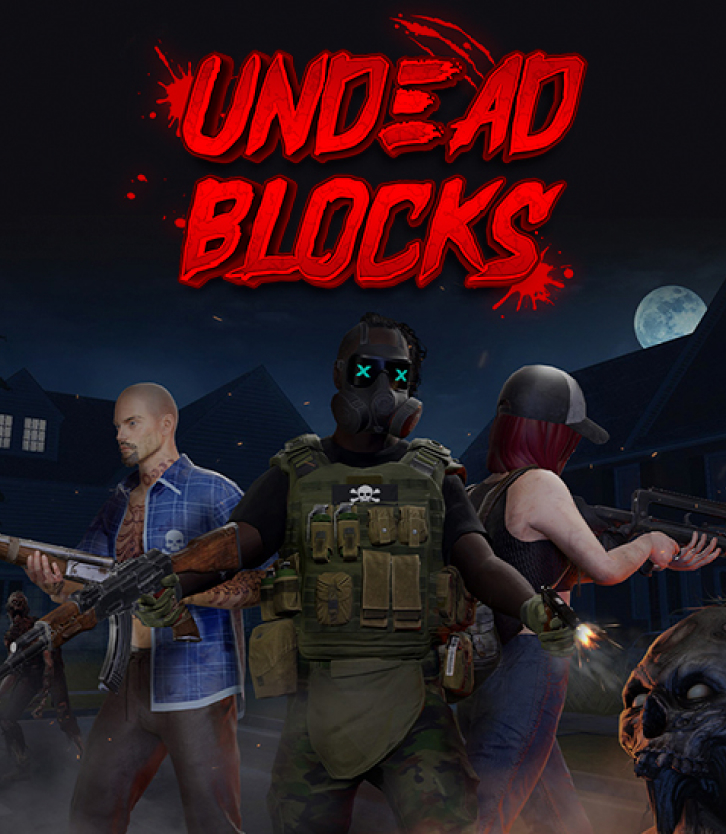Until recently, cross-platform development meant creating games for PCs and consoles. Now mobile devices have joined this list. This is the most dynamic and fastest-growing segment of the gaming market with great prospects.
Of course, console exclusives will remain, as will PC-only games. But the future lies in cross-platform development. About 2.6 billion mobile players exceed 1 billion PC players and 603 million console players combined. It is irrational to miss this opportunity. Therefore, today we are talking about multi-platform game development so that everybody knows.
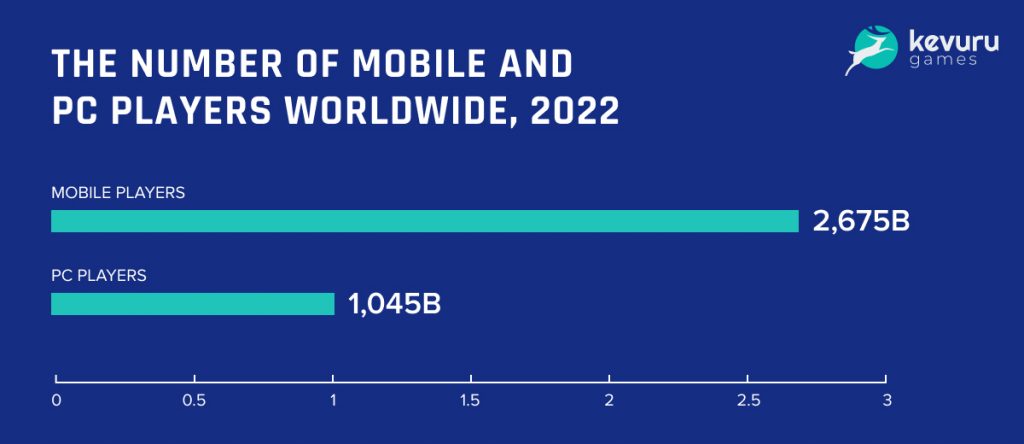
What is Cross-Platform Game Development and How Cross Platform Works?
It would be unwise to delve into a topic without a basic definition – perhaps someone has doubts about their knowledge.
Cross-platform game development is the creation of a game that can run on multiple platforms at once.
How does cross-platform development work? Unlike native development, which uses official tools provided by the developers of the system for which the game is being created, cross-platform development requires different software to help adapt one code for multiple systems.
So the code base is the same for all developers. And to create platform-specific parts of the game, various software development kits, scripting languages, software libraries, and game engines are used.
Cross-platform development is complex and multifaceted. This requires much more attention to detail. When releasing a game on multiple platforms, it’s easy to miss the nuances.
Interesting fact. The reputation of many publishers of highly anticipated games has suffered greatly due to the fact that they did not conduct proper testing and missed a lot of bugs and errors in the final console version. At the same time, the PC version turned out to be quite acceptable.
The key to successful multi-platform game development can be choosing the right game engine. There are well-known options, and there are less common engines that do the job just as well. Our task is to review the best cross-platform game engines and give each of them an unbiased assessment.
What Games Are Cross Platform?
In today’s dynamic gaming landscape, one of the most exciting developments is the rise of multi-platform game development. This revolutionary concept has transformed how we play games, enabling players from different devices and platforms to come together and enjoy seamless multiplayer experiences.
Popular Cross-Platform Games
Now that we’ve explored the advantages of cross-platform gaming, let’s dive into some of the most popular titles that support this revolutionary feature:
1. Fortnite: This iconic battle royale game took the gaming world by storm with its cross-platform capabilities. Whether playing on PC, console, or mobile, Fortnite enables you to engage in exhilarating battles with players from all platforms.
2. Minecraft: Known for its limitless creativity and expansive worlds, Minecraft offers cross-platform compatibility, allowing players to embark on adventures together, regardless of the device they’re using.
3. Rocket League: Combining high-octane racing and soccer-inspired gameplay, Rocket League brings players together in intense multiplayer matches across various platforms.
4. Call of Duty: Warzone: This popular first-person shooter has embraced cross-platform gaming, allowing players to team up with friends and engage in epic battles on PC, consoles, and mobile devices.
Benefits of Cross-Platform Game Development
If someone still has doubts about the benefits of cross-platform gaming and questions “Why do I need all this?”, then we have an answer.
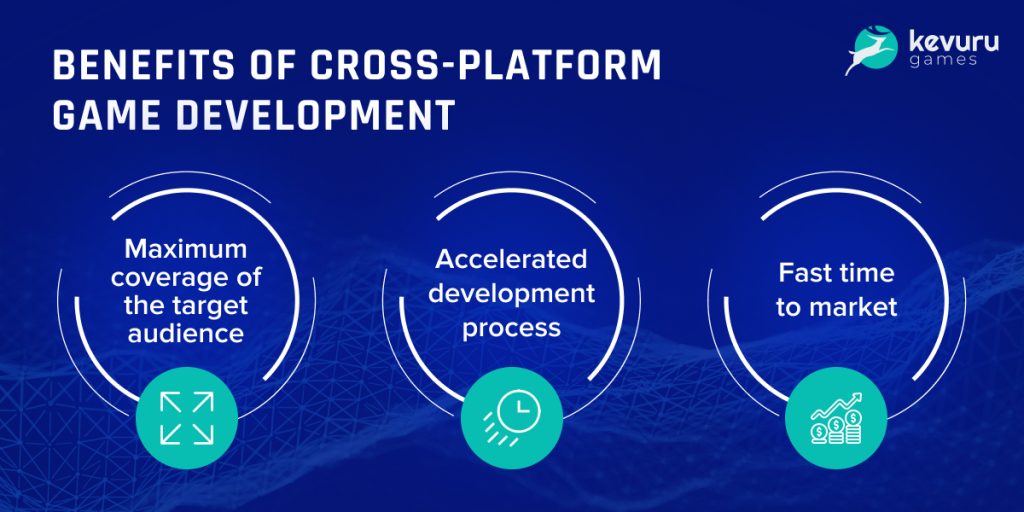
- Maximum coverage of the target audience. If you know that your potential gamers use both PC and console for gaming, not to mention mobile devices, then covering all types of devices will help you reach a wide segment of users.
- Accelerated development process. If you plan to release a game on multiple platforms, then it is better to do it right away than to create a separate game for a PC, and then adapt the finished product for mobile devices.
- Fast time to market. Bringing a cross-platform game to market is much easier. It is enough to take into account a number of requirements set by stores. The game attracts the interest of several segments of players at once, thus spreading much faster.
Of course, cross-platform game development comes with its challenges. If the interface display for console and PC games is not very different, then there may be difficulties when adapting the game for mobile devices.
It’s also important to pay attention to game controls. Its specificity will be completely different for PCs, consoles, and smartphones. At the same time, one needs to preserve the personal atmosphere of the game and the features of the gameplay. It is indeed a challenge, but the benefits outweigh the difficulties.

Best Cross-Platform Game Engines: Info Not To Be Missed
Multi-platform game development at once requires not only certain skills and knowledge, but also special tools and languages.
First of all, you need to understand what platforms you are targeting:If this is a classic trio of PC, console, and mobile, then development can be safely done in C++. For Java-loving Android, it is possible to use JNI to make friends with C and C++ .
C++ provides maximum performance on all platforms. However, keep in mind that the cost of developing a cross-platform game in C++ will be higher since it is more difficult to work with than with other languages.
Now let’s talk directly about cross-platform engines and porting games.
Unity
Unity is a true C++-based giant for multi-platform game development that works great with PCs, consoles, and mobiles.
When it comes to scaling in terms of budget, it’s hard not to mention Unity. At the same time, the development cost will be much lower than in the case of pure C++. One of the features of the engine is that it doesn’t give users access to its source code (Except Unity Enterprise package), so you don’t have to suffer a lot.
Dive Deeper:
✔ Unity − What Makes It the Best Game Engine?
Unity uses C#, Boo, or UnityScript as the scripting API for the game and features an intuitive interface and easy setup for cross-platform game development. It is enough just to select the target platforms when installing the engine – all the necessary SDKs will be loaded automatically.
Most often, Unity is chosen by mobile developers, indie studios, and small game companies that do not focus on advanced graphics, open world, and 100+ hours of gameplay. By default, it includes a minimal number of plugins, which greatly reduces the build size. In addition, Unity offers a huge number of 2D and 3D resources optimized for mobile devices.
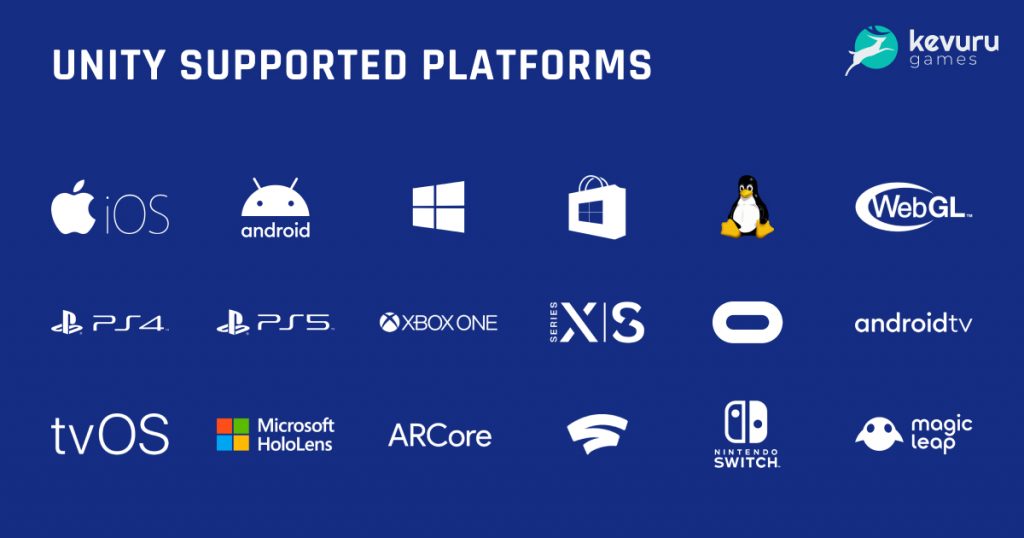
Unreal
Unreal is one of the most powerful and advanced cross-platform game engines of our time.
With the built-in visual scripting tool Blueprint, you can create game visuals targeting different hardware.
Using Unreal, you can avoid having to dig deeper into C++, but you have to install separate SDKs for each target platform for cross-platform game development. At the same time, if you wish, you can modify the source code – the engine gives you access to it.
Like Unity, Unreal supports game development for PCs, mobiles, and consoles. It is important to know that the engine contains a large number of plug-ins built in by default that are only relevant for large games, and you will have to find and disable them manually if your choice is mobile games. Therefore, most often this engine becomes the choice of companies planning large-scale projects for PCs and consoles with multiplayer mode.
Dive Deeper:
✔ Best Game Engines of 2022: Pros, Cons, and Top Picks for Different Types of Games
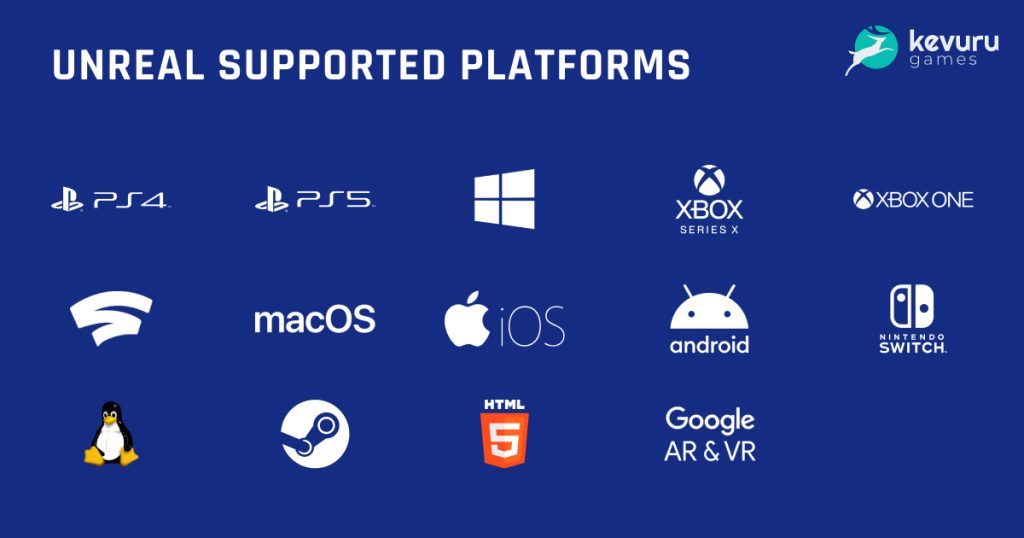
HTML5
HTML5 is the fifth version of the HTML markup language that extends, improves, and rationalizes document markup and adds a single API for complex web applications.
Browser-based games love HTML5. According to Vision Mobile, more than half of mobile games and apps are built using HTML5 combined with JavaScript and CSS. As a result, you will get a responsive game that is shown in any browser on any device, be it a smartphone or a desktop. That being said, your budget can be very modest.
The basic components of an HTML5 game are HTML, CSS, and JavaScript. With them, you can create great games that will run on web browsers on smartphones and desktops. Some games may require additional features, so you can add more building blocks.
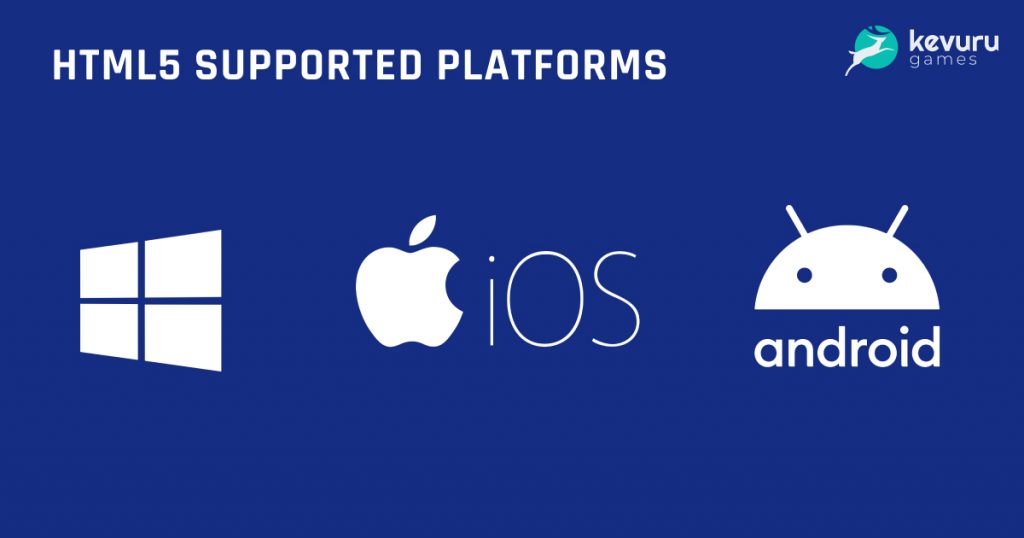
Godot
Godot is a feature-packed open-source language that supports cross-platform 2D and 3D game development.
It comes with a user-friendly visual editor and built-in nodes that greatly simplify and speed up game design. With it, you can offer game porting services deploy games for PC, mobile platforms, and web platforms using HTML5 and WebAssembly. Export to console is only possible with third-party porting service providers that are licensed console developers.
Godot is a relatively easy to learn and use game engine. Both experienced developers and novice enthusiasts can work with it. The built-in programming language GDScript has almost the same syntax as Python and is easy to learn. An intuitive editor and the ability to integrate with third-party plugins and applications also reduce the entry barrier .
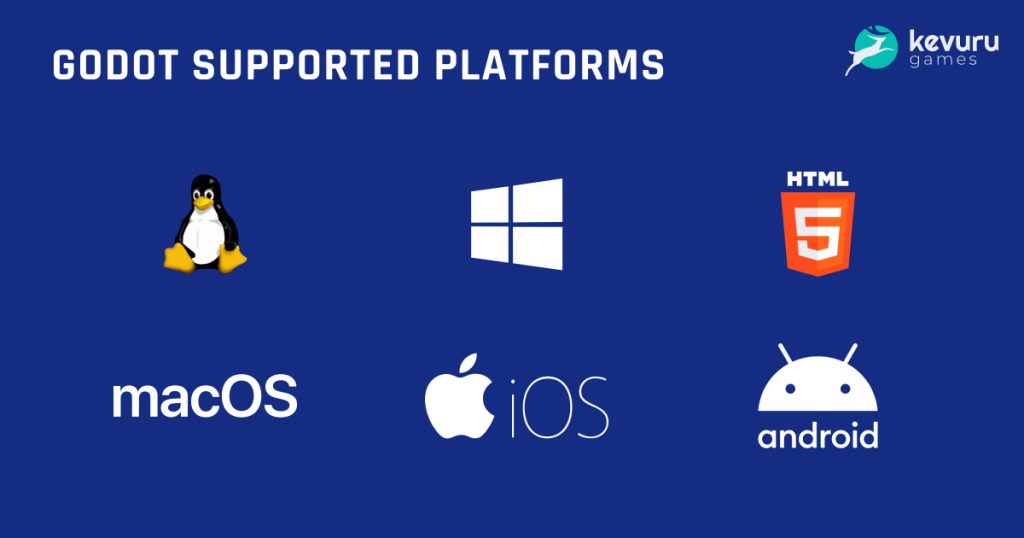
Cocos2D-x
Cocos2d-x is a free cross-platform open-source framework for games and other graphics applications.
This is an ideal option for mobile platforms. At the same time, the basis of the program remains the same: only minor adaptation to a specific platform is required. Cocos2D-x is available in C++, JavaScript and Lua. The framework is simple and fast enough to implement.
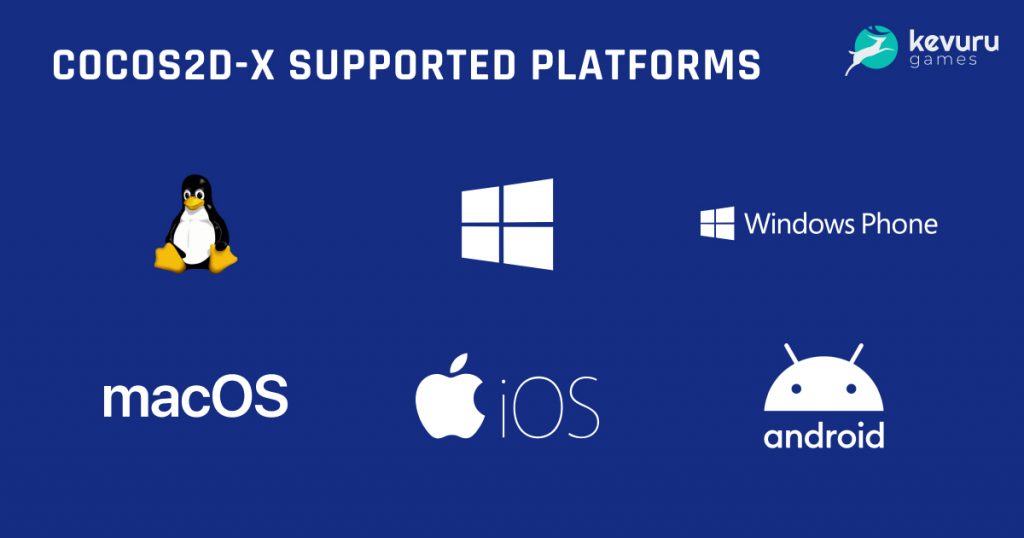
Looking Ahead: What’s in Store for Cross-Platform Gaming
Anyone who cares about quickly bringing their product to market simultaneously on multiple platforms is already actively developing using cross-platform solutions.
At Kevuru Games, we also offer cross-platform game development services with experienced developers and clear pipelines. In 2023, the trend will not change, and more and more companies will use cross-platform game engines and approaches. Cross-play, cross-progression, and cross-buy functions are demanded by players – they allow people to:
- play together using different game platforms;
- start playing on one platform and continue on another;
- make the process of buying a game available on different platforms one-time-only.
Using a single codebase affects all aspects of game development down to reducing the number of developers required. This allows the company to save money that would normally be spent fixing and updating two separate codebases. A significant part of the initial project budget saved can be spent on further improving the game in accordance with user feedback. As a result, cross-platform game development achieves its goals in a balanced way in terms of cost, time, complexity, and user experience.


